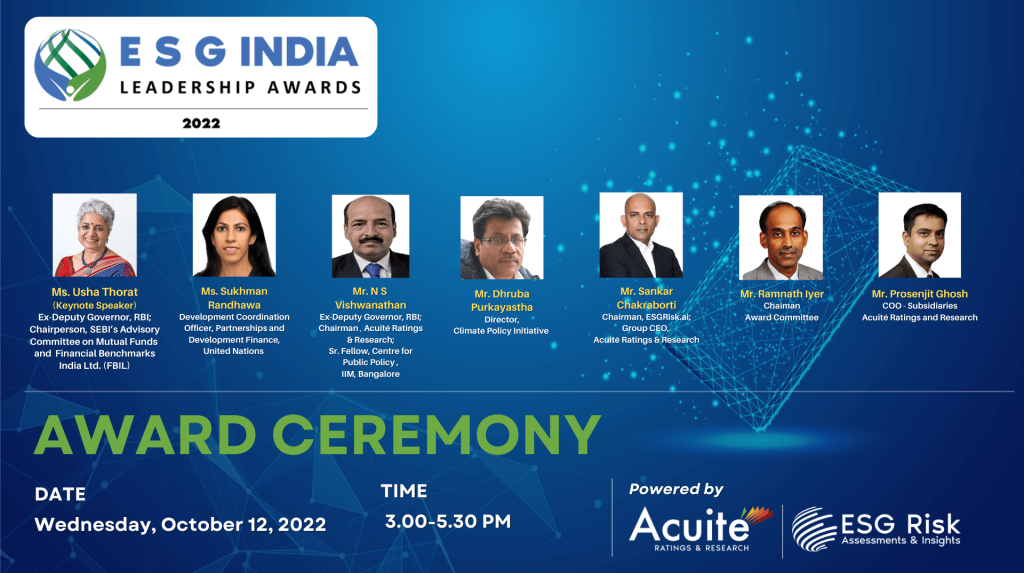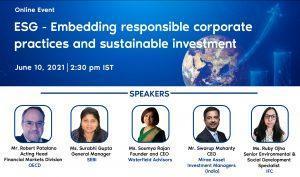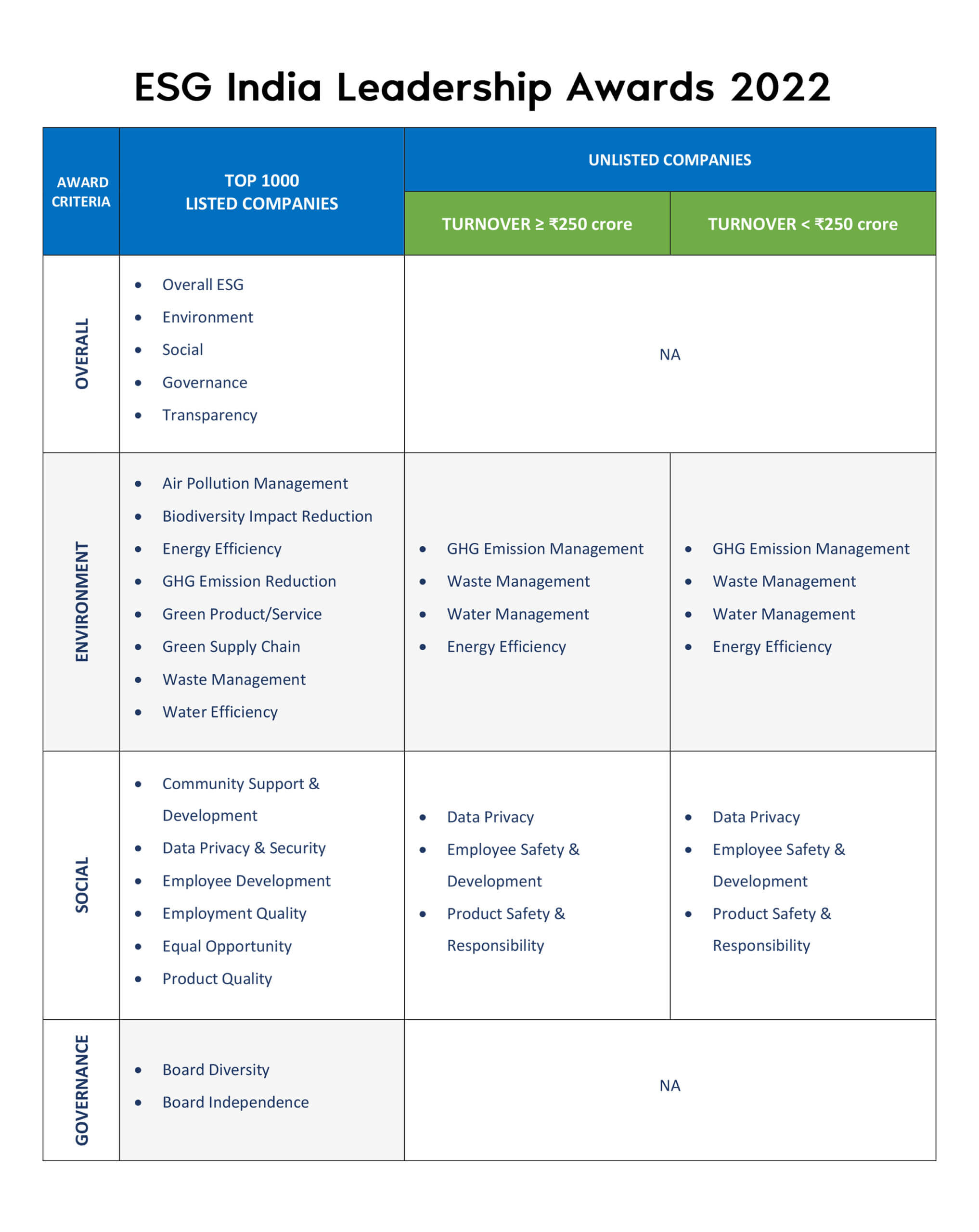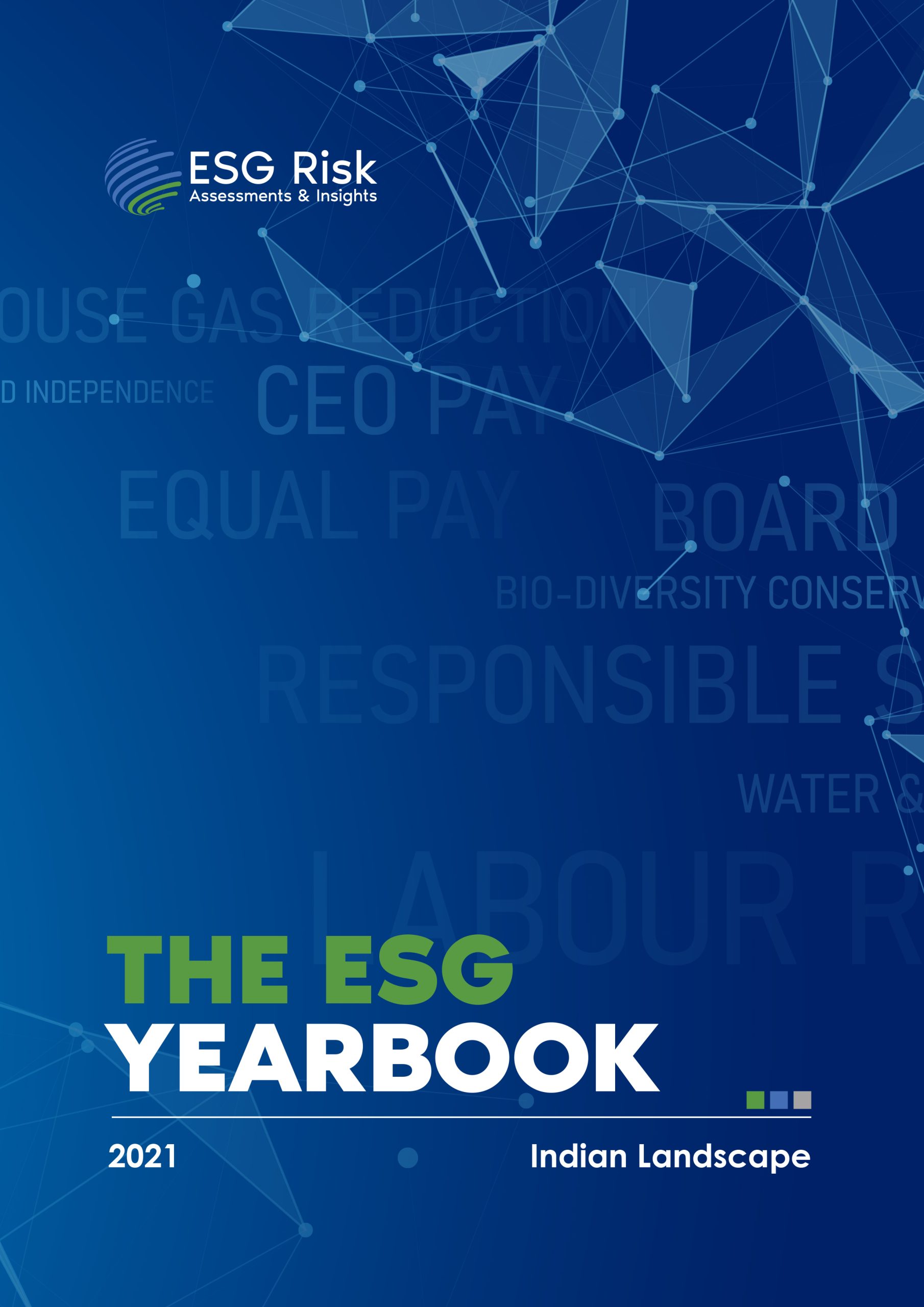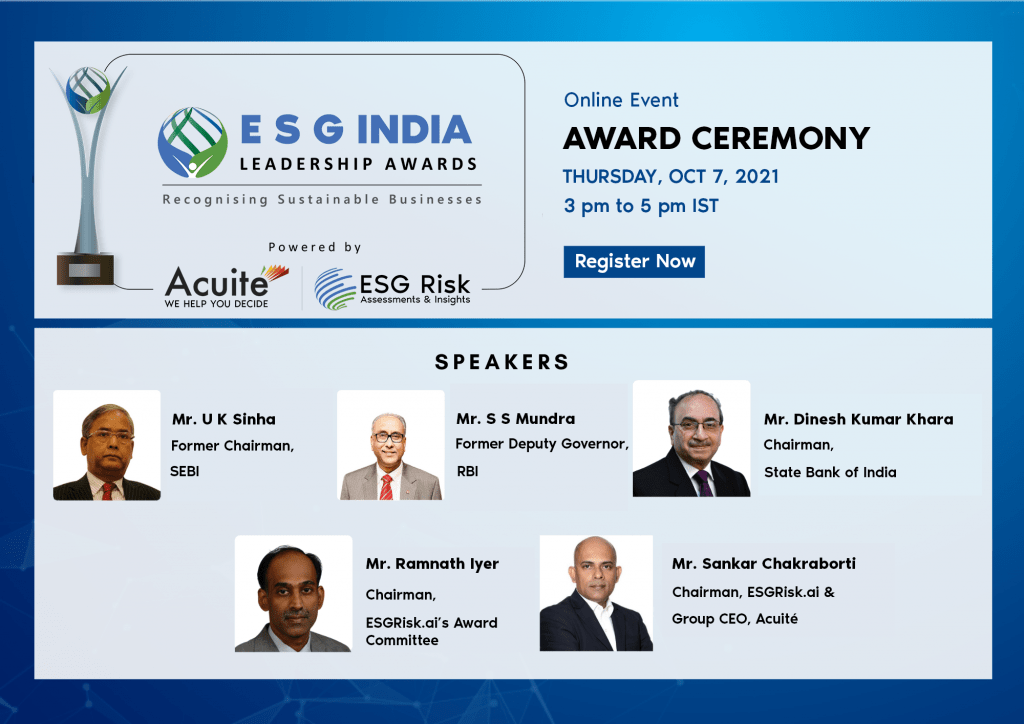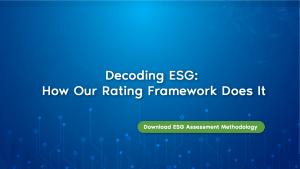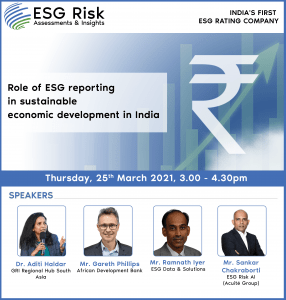What makes ESG complete
Preparedness is a key component in future-proofing businesses. In the past, the term ‘preparedness’ in businesses would be associated with just financial and operational risks. With Environmental, Social, and Governance (ESG) taking centre stage, business leaders are equally focused on managing ESG risks. It’s become a significant driver of stakeholder satisfaction. Essentially, it includes ESG factors that impact the management and contribute to the continuous growth of a company.
Businesses assess these risks and mitigate them as much as possible. Effective ESG risk management enhances an organisation’s credibility, ensuring its survival in a competitive market. Businesses reluctant to address ESG risks fail to attract investors who align profit with purpose.
Let alone investors, even scores of customers seek guilt-free returns. They have faith that sustainable business models will deliver long-term results. From a company’s perspective, failure to demonstrate the right ESG behaviours results in dwindling customer loyalty.
Further, businesses realise that irresponsible ESG practices could cost them dearly. Not to forget that regulatory bodies are implementing stricter ESG regulations. Failure to comply may -result in severe penalties and shutdowns.
It must be noted that the definition of ESG risk management is used in a broader sense. ESG risk management has a strong bearing on different layers of security risks:
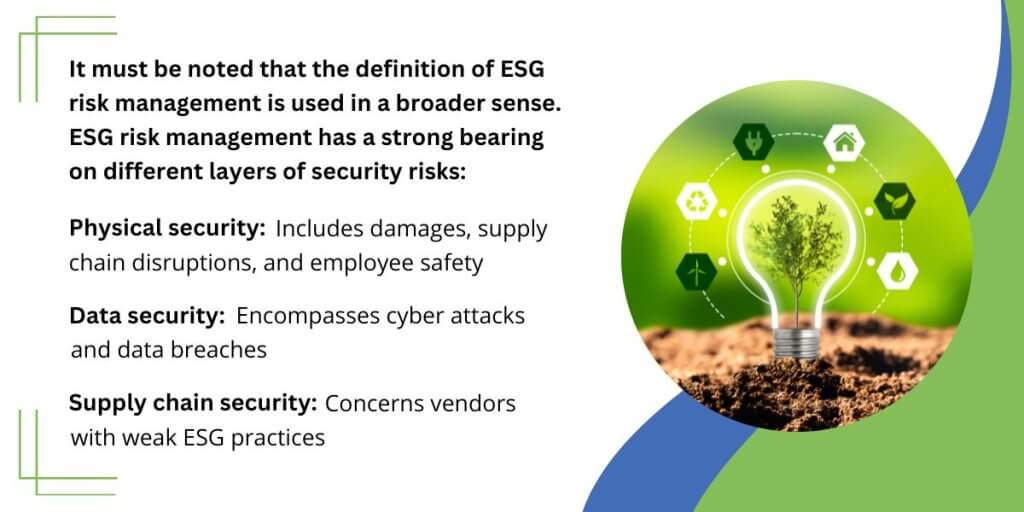
However, the environmental part of ESG is widely emphasised. Businesses believe they could be conceding a huge advantage to competitors that develop environmental-friendly products, embrace sustainable practices and minimise resource consumption. Engaging in such practices helps them attract environment-conscious customers and gain access to emerging markets.
What is ESG 360?
ESG is not just about sound environmental practices. ESG 360 is about implementing the three pillars, E, S and G, in totality. For sure, water conservation, waste management, transition to a circular economy, recycling, pollution prevention and control and protection of the ecosystem must be part of any business’s core ESG strategy.
However, labour practices, good working conditions, managing businesses without disrupting societies, human rights, community outreach programmes and acts of altruism are all part of ESG’s ‘S’ component, which can’t be understated.
Good governance includes executive compensation, shareholder rights, regulatory compliances, financial reporting, avoiding conflict of interests and not engaging in illegal activities like corruption and bribery.
However, ESG risks in these three pillars could be a stumbling block for organisations. Let’s start with
environment, the way ESG-ignorant businesses impact climate change and biodiversity.
Environment
Emissions and irresponsible waste disposals from chemical factories release pollutants into air and water, thereby impacting biodiversity. Unregulated industrial pollution endangers marine life as it contaminates water bodies and harms the aquatic ecosystems.
The power sector is a significant contributor to greenhouse gas emissions that have far-reaching effects on the environment and human health. Greenhouse gases trap the heat in the atmosphere causing adverse climate change. Coal-based power generation is one of the leading CO2 emitters.
Social
A few years ago, the Church of England withdrew from Vedanta Resources’ mining project in Orissa. Activists believed that the project, besides adversely impacting the Niyamgiri mountain’s ecosystem, would deprive the Dongria Kondh tribe of water and crops from the hills. The Church was on record saying that they sold all -its shares worth £3.8m after Ethical Investment Advisory Group (EIAG) claimed that Vedanta did not show “the level of respect for human rights”.
In 2016, SportsDirect, a sports retailer, allegedly penalised its staff for a water break and for taking time off work when ill. These are a few of several examples that could be cited in the ‘Social’ category.
It’s a broad area given that vendors and suppliers too could pose potential social risks. Nike, for instance, was accused of violating child labour laws and making workers operate in inhumane conditions that were likened to sweatshops. In ESG case studies, this is a strong example of human rights violation. Businesses that disregard ESG’s ‘S’ aspect foster a negative environment and inhibit motivation levels, which lead to low productivity. Nowadays, many employees value a company’s commitment to ethical practices and not just their own growth.
As was the case with the mining project in Orissa, neglecting social factors attract needless publicity from activists, which disrupts operations and tarnishes company’s image.
Governance
Corporate history is littered with examples of governance failures. The Theranos scam is considered one of the most epic failures in corporate governance. The founder of the group Elizabeth Holmes exaggerated revenue projections and promised to revolutionise blood tests with a false claim. Holmes was charged with committing $700 million of fraud against investors. It was a blatant disregard of corporate governance processes that ought to control and direct a business. That includes accountability on the part of CEOs and other executives in corporate echelons.
Of late, India’s biggest ed-tech brand has been in the news for instances of alleged corporate misgovernance. One of the largest technology investors in the world and the largest non-promoter shareholder at the company told a media outlet that the ed-tech company’s reporting and governance structures did not evolve for a business of that scale.. As experts often say, businesses must prioritise governance right from their foundation stage, not after the damage is done.
Strangely, the ‘Governance’ aspect of ESG, the very foundation of stakeholder capitalism, somehow doesn’t get as much attention until a major scandal erupts.
Poor governance impacts every nerve of a business. Apart from reputational costs, -it erodes stakeholders’ trust, hurts employee morale, decreases valuation of the business and results in long-term legal consequences.
- Companies may miss out on a 360-degree ESG approach if they focus on one element to the detriment of others. Businesses need constant engagement with stakeholders in the form of ESG-related dialogues to improve their sustainability practices. It’s here that ESG rating agencies make a difference by:
- Providing standardised assessments
- Identifying potential industry-related ESG risks
- Promoting transparency
- Improving a business’s ESG performance and reporting
- Mitigating ESG risks
The ESG risk mitigation strategies may include implementing policies, taking initiatives, integrating ESG considerations into decision-making processes, setting targets and monitoring progress.
While several ESG-rating providers have expertise in research-enhanced solutions, ESGRisk.ai provides a comprehensive ESG-assessment framework for Indian companies. ESGRisk.ai has an assessment database of the NSE top 1100 listed companies across 66 industries.
What makes ESGRisk.ai stand out?
Exclusions
Integration
Impact investing
Sustainable objectives
Best-in-class and positive screening
- First to be empanelled with AMFI as the ESG Rating Provider (ERP) to the Mutual Funds Industry in India
- Industry Specific Materiality – Industry Specific materiality for each indicator
- Benchmarking – Peer assessment with quantitative and qualitative parameters
- Nuanced Taxonomy – Comprehensive taxonomy consisting of 1000 indicators, where indicators pertaining to the risk exposure and management can be aggregated to evaluate the performance
- Fast Turnaround – We leverage our benchmarks and technology for fastest turnaround
- Mapping ESG initiatives and strategies to global frameworks and standards
ESGRisk.ai presents a holistic picture of ESG performance of the companies right from the need for policy interventions to sustainability initiatives taken and targets set.
ESG risk management is a strategic imperative for forward-looking organisations. In handling ESG risks, businesses manage both financial and reputational costs. All they need is the right attitude and ESGRisk.ai by their side.
